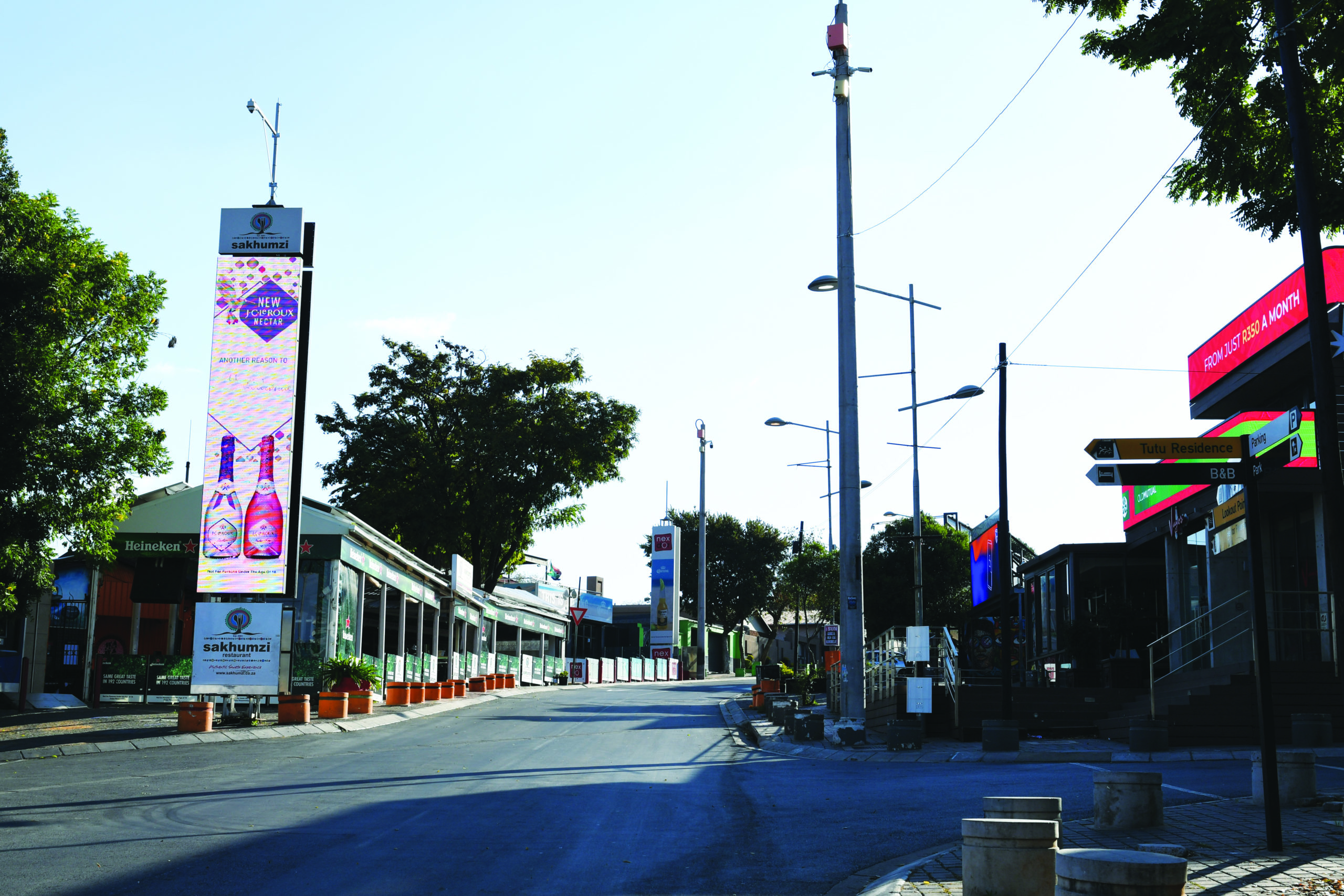With a deadly virus still lurking in the streets and tougher times ahead, traders in South Africa’s colorful townships desperately look to resuscitate their businesses with creative offerings online.
It’s almost two months into lockdown in South Africa and the country’s townships, once bustling hubs of trade, are slowly bracing themselves, with every ounce of willpower left in them, for the unprecedented reality that is ‘the new normal’.
For many, the national shutdown and closed shutters have meant lost jobs, stalled incomes and empty pockets, not to mention a deadly virus stalking them in every street and alley. The small entrepreneurs here – the lifeblood of any economy – now on their last pennies, are still hopeful their re-evaluated strategies and revamped resilience will see them through this fearful nightmare, as the restrictions ease and the townships will slowly crawl back to life again.
Behind the respectful veneer of the lockdown, some of the smaller traders hustle on illegally, under the radar, dodging police patrols and armed surveillance. They have no choice but to stick to their street-smart ways, to survive and feed their families.
In the township of Soweto, bigger, popular establishments such as The Box Shop on Vilakazi Street – the historic stretch home to Nobel Peace Prize winners Archbishop Desmond Tutu and the country’s former President Nelson Mandela – are looking to the future with great uncertainty, and have been forced to devise alternative digital strategies as lifelines for the present.
Sifiso Moyo founded The Box Shop, a lifestyle and retail outlet with his business partner, Bernard Msimango, and today, the street it’s located on, which attracted thousands of local and international tourists every day prior to the pandemic, is eerily quiet.
It will be a while until planes of international visitors land again, so the duo have chosen to go to them – online.
“For The Box Shop, we built hype around online and have taken the entire offering that existed in our physical infrastructure into a digital platform and that has made us into an innovation space, giving us access to a global audience. We are beginning to see our products being sold in places like Switzerland and the United Kingdom and we now have started harnessing partnerships,” says Moyo.
The website was launched in May, but the bigger vision for the entity was to start as a retail outlet and work backwards into the manufacturing space.
Moyo says the coronavirus taught them two things – to adapt digitally, and to work in the value chain.
The shop now also makes face masks, sold to public hospitals and NGOs.
A short drive from Vilakazi Street is a restaurant named Sancho, selling African cuisine and founded by Thato Mothopeng, a serial entrepreneur who also founded the popular annual Soweto Camp Festival.
Mothopeng is one of the few entrepreneurs in the tourism sector without a formal degree or training, but has had a roaring business nevertheless and is quite well-known in the circuit.
Mothopeng says all SMMEs are at a standstill because business thrives on human contact. But business also needs to be flexible, he adds.
“There are opportunities in the harshest environments. I am using this time to review my strategies. I am also not panicking because the country is managing the crisis; this is an opportunity for SMMEs to reflect because our people are sober now.”
He had to let go of a few employees and is working remotely.
Further in the township of Soweto, Thembeka Nkosi, the founder of Le Salon, has also developed her own coping mechanisms.
Her shop is shut, but people still seek her grooming advice. As per South Africa’s Level 4 lockdown restrictions, salons and beauty parlors are not allowed to operate.
“This [lockdown] is very stressful, more especially now because other businesses are operating. I still can’t make money, I still have to stay at home and not work,” rues Nkosi.
In addition to getting to spend more time with her five-year-old son, she has recently started sharing her haircare tutorials on social media.
“Now that shops are open to buy hair products, I send video clips to my clients and that brings me joy, knowing that I am still useful to them; even though it’s not making me any money yet, at least I am interacting with my clients,” she says, looking at the bright side.
Ronewa Creations is yet another small business in these parts.
Founded by Lesego Seloane and Dinah Kgeledi, the business offers landscaping services, garden maintenance and water harvesting solutions, and employs seven full-time workers. None of these services are allowed in the current phase of lockdown.
“Now that our province is still on Level 4, it is really difficult to focus because when we were working out our plans, there was so much uncertainty and we didn’t know how they could actually be implemented,” says Seloane.
She is grateful the duo have been active on social media, running a garden makeover campaign and offering landscaping designs for free.
“We are using a three-dimensional technology that revamps the look of gardens to give people an idea of how their gardens could potentially look like in the end.”
Despite the challenges, the two keep sane by spending time with family.
“If the business fails, I fail. If I don’t come out of my down moment quick, then I will fail and the entire organization fails,” says Seloane.
You can detect the determination in her voice to overcome this period, come what may.
Like many around her staring fear in the face, she has no other choice.
